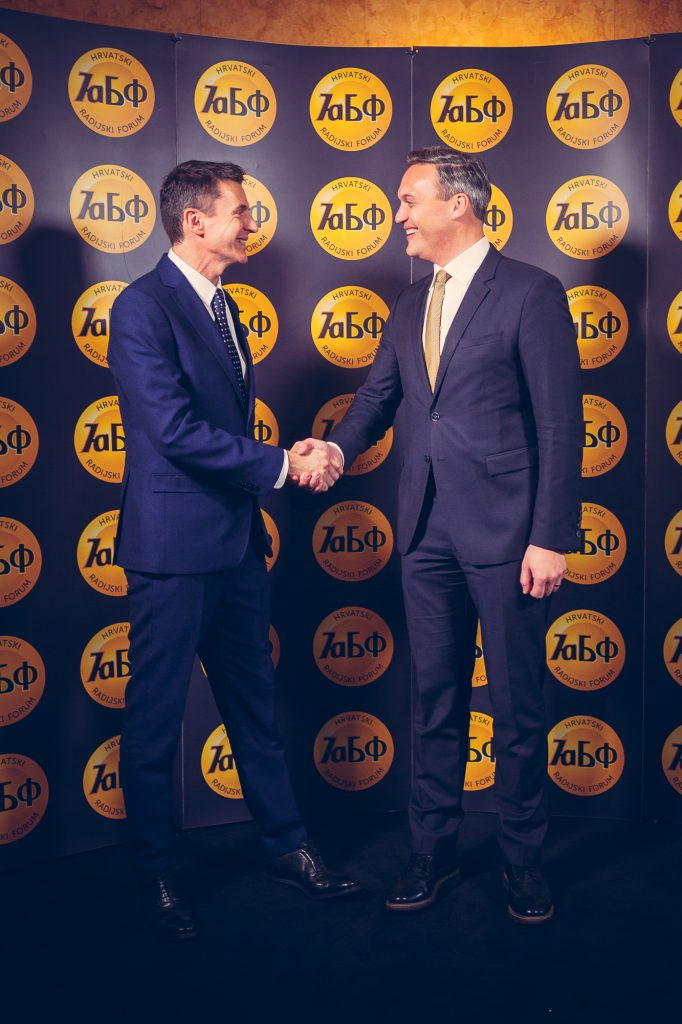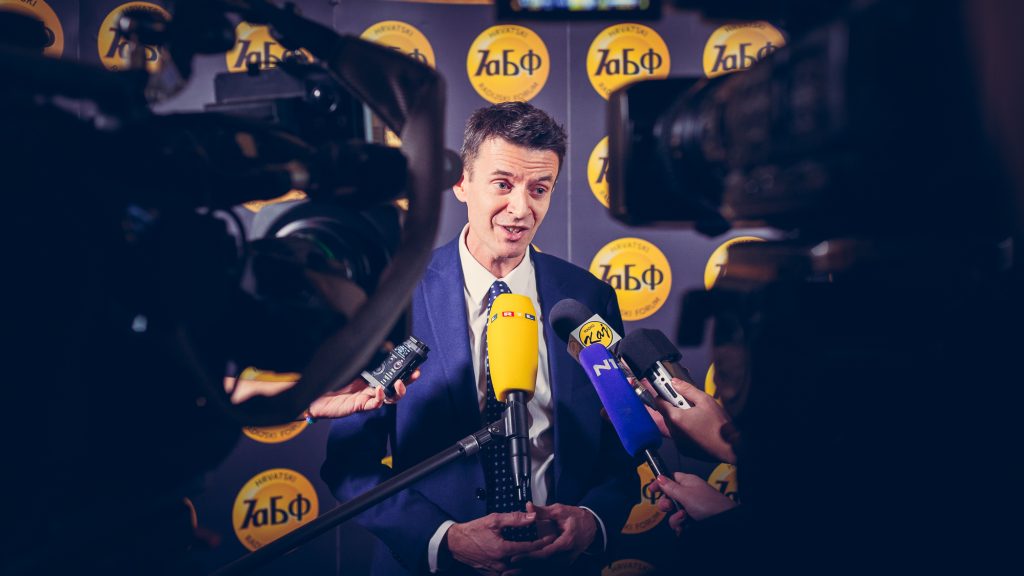
Matt Payton, Secretary General, Association of European Radio (AER)
Based on speech to Croatian Radio Forum on World Radio Day 13 February 2020
Radio across the world remains a strong and powerful medium, but to succeed in future it will need to tackle some significant shared challenges. World Radio Day is a great opportunity to reflect on this and think about the future.
The focus of this year’s event was diversity and the range of different voices from around the world. So it was appropriate that AER was invited to spend World Radio Day at the Croatian Radio Forum conference in Zagreb, to talk about the collective challenges facing commercial radio across Europe.
As AER Secretary General I was honoured to speak to the radio industry in Croatia, although it may have seemed a bit odd someone from the UK talking to a European audience about the benefits of co-operation, especially less than two weeks after Brexit.
But while Brexit is now a fact of life, all that means is that the UK is not part of the European Union or its institutions. It doesn’t change the fact that we are still a European nation and more connected to each other that ever before – not just politically or economically – but through shared experiences online and through social media. We also see this through our enjoyment of music, entertainment and sport, as well as our desire for reliable news and information.
These shared experiences (and the shared challenges that we face in the radio and audio sector) are why my employer – Radiocentre, the industry body for commercial radio in the UK – remains committed to working together with our colleagues across Europe. As part of this commitment I am also proud to hold the honorary position of Secretary General of AER, the Association of European Radio.
Unfortunately I never had the skills, the patience – or the voice – for a career working on the radio myself, but luckily for me I found a way of putting the skills that I do have to good use. By working on behalf of radio stations firstly in the UK, and now in Europe through AER, to create an environment that means they can succeed and grow.
So what is AER? In simple terms – it is the voice of commercial radio in Brussels. It represents companies that operate over 5,000 commercial radio stations across Europe. It supports a healthy commercial radio business through its lobbying activities. It is a direct link to EU and international institutions and can inform and influence the decisions that they make. Crucially it is also a way for the commercial radio industry to exchange and share information on some of the big challenges we face.
AER has 16 members from all across Europe – and I am delighted to say that we are growing. In fact we were very proud to announce – on World Radio Day – that the Croatian Radio Forum has become the latest member to join AER. Becoming our 17th member. The more countries that become part of AER the stronger and more influential we become. And we need that strength now more than ever.

At the moment radio in Europe remains in a strong position. On average 85% of the EU population listens to radio each week, for more than 2 hours 22 minutes each day. At a time when audiences have more options and distractions than ever before these figures are impressive.
Radio’s popularity is a reflection of its unique ability to connect people with all sorts of different content – from music and entertainment, to news and speech – in a way that is simple, free and reliable.
As a result the European Commission’s own Eurobarometer surveys have consistently found that radio is the most trusted of all media. Scoring highest in 24 out of 33 countries surveyed, with 60% of EU citizens saying they trust radio on average.
So we start in a good place. Which is just as well, because the world is changing fast and radio is having to adapt.
There are three major challenges in particular that we share.
- Competition
- Regulation
- Access
On competition. Radio has always had to compete for attention and for audiences. Nothing new in that.
But now the competition is not just with the radio stations or media companies in our area, or even in our own country. Instead, radio is now part of a much wider digital and audio entertainment market.
Audiences have more ways of listening than ever before. While broadcast radio still reaches big audiences, internet connected devices – from smartphones to smart speakers – are growing and providing an explosion of choice.
Services like TuneIn now provide access to 100,000 radio stations and on demand content from around the world. The number and range of podcasts is also mind blowing – with an estimated 850,000 active shows available amounting to more than 30 million episodes.
On the one hand this is exciting. Music streaming and podcasts have created a new interest in audio from consumers and advertisers. But it also presents major challenges. How does radio stand out and stay relevant in this new world? And how can it compete with online platforms that have no regulation or oversight?
That takes me to the second challenge – regulation
For radio companies, regulation is a fact of life. Most of our listening is still on broadcast platforms (usually FM or DAB) and the privilege of being able to have access to this “walled garden” means that there are rules and regulations we have to follow.
This can be a force for good – or for bad – depending on how it is handled. For example, we believe that one of the reasons that radio is the most trusted media in Europe is because in most markets it is required (and regulated) to be politically balanced.
As a result European radio stations are free of fake news – which is not the same for online sources like social media. This is an example of regulation working well.
However if regulation crosses into other areas – for example, in setting quotas for local music, news or other information – it starts to make radio less competitive and even risks placing limits on media freedom and independence.
Finally there are also pressures on radio’s free and easy access.
Above all else radio must to available, wherever and whenever listeners want it.
For radio stations that is not as easy as it used to be. Radio alarm clocks have disappeared. Replaced by mobile phones and smart speakers. These devices don’t have FM or DAB. Nor do tablets, laptops or desktops.
Radio is also becoming more difficult to find in new cars – as they too become internet connected and equipped with digital entertainment options.
With these changes happening, and online listening growing, radio is caught in a difficult situation. While online listening is still a minority at the moment (generally 10 to 15 % across Europe) it is only going to increase. This provides us with opportunities to capture more data and improve our offer to audiences and advertisers. But it also means competing on a much bigger playing field.
And it is a playing field where the tech giants will have a much bigger role to play. Not only in providing competing services – but also controlling our route to market through devices like smart speakers. We need to act now to ensure that radio is not squeezed out as a result of these changes. Otherwise we are trusting Amazon, Apple and Google with our future. That is not a good place to be.
So there are clearly some big challenges being faced by radio. And in 2020 these are not challenges that are unique to any one country – or issues that we can tackle alone. Which takes me back to why AER and international co-operation remains so important for our future.
Over the past few months AER have developed a six-point plan to secure the future of radio, which it will be asking the European Commission and European Parliament to consider when developing its plans for radio and media over the next four years.
In summary these priorities cover:
- Media pluralism – meaning we support a strong, independent and high-quality choice of media (something that it not always guaranteed, especially online).
- Access – we want to ensure access to radio is secure, for listeners and for radio stations, whatever device they are using. We believe initiatives like the Radioplayer platform, which is now used by radio stations in 12 different countries (including most of the major markets in Europe) can help with this. But it may also require action from Government and the EU.
- Competition – we want to ensure fair competition with public broadcasters and especially with digital platforms like Google and Facebook that have huge market power, but no real regulation or responsibility.
- Advertising – we fight to prevent unnecessary advertising restrictions (that can be especially damaging on radio) while also making sure we protect consumers.
- Promotion – we want to ensure that radio’s role as part of Europe’s creative industries is recognised – especially its support for artistic freedom and promoting music.
- Copyright – we support an efficient, affordable and fair copyright regime for radio, which recognises the investment and value of radio compared to music streaming services.
These priorities will guide AER’s agenda for the coming years. We hope we can find common ground on these issues and create an environment that means radio can continue to thrive and grow in future despite the challenges it faces.
We believe that this must be possible and that we can only have a real impact if the whole radio industry continues to work together. As the American industrialist Henry Ford famously said:
Coming together is the beginning;
keeping together is progress;
working together is success.
And working together is what we plan to do, so that we can secure the future of radio for everyone.
Photos of the Croatian Radio Forum can be found here – Courtesy of Ana Smrečki